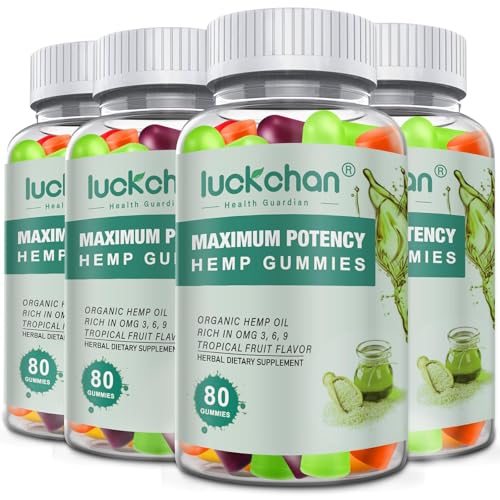
The ban, enacted by Governor Mike DeWine via executive order, targets products containing THC that are sold outside licensed marijuana dispensaries—such as those found in gas stations, smoke shops, and CBD stores. Legal marijuana sales are unaffected.Business owners say the ban will force closures, layoffs, and lost revenue.
- ✅ POWERFUL FORMULA: Get 4 bottles of 2,000,000 potency of Real High Potency Hemp Gummies for the price of 1 bottles of 9…
- ✅ ADVANCED CO2 EXTRACTION: Uses advanced CO2 to extract essential nutrients from the plant (stem, leaves, etc.). Get pot…
- ✅ PREMIUM HEMP GUMMIES: Organic Hemp Gummies from Colorado. Third-party, ISO-certified lab tested to ensure purity and p…
‘It’s been heartbreaking.’ Ohio CBD shops, breweries prepare for 90-day intoxicating hemp ban
by Megan Henry, Ohio Capital Journal
October 14, 2025
Ohioans who sell intoxicating hemp products are worried what the 90-day ban that goes into effect today (Tuesday) will mean for their businesses and customers.
Ohio Gov. Mike DeWine recently announced a 90-day executive order that bans the sale of intoxicating hemp products that starts Oct.14.
Intoxicating hemp products are items that contain THC that are sold anywhere other than licensed marijuana dispensaries including gas stations, smoke shops, and CBD stores, among others.
Marijuana is not considered an intoxicating hemp product and is legal in Ohio. This ban does not affect the marijuana law passed by voters in 2023.
Todd Hicks opened his new CBD store in Columbus days before DeWine announced the ban.
“It’s been heartbreaking,” he said. “Honestly, it’s been totally heartbreaking. I don’t know which direction to go.”
Hicks said he will likely have to close his new shop and let go of his three employees.
“I can’t afford them,” he said. “Well, there’s nothing for them to do, right? They can’t sell the product. There’s no one going to be answering the door or coming to the door to actually buy the product. So I don’t need them.”
Children getting ahold of intoxicating hemp products is a parental issue, Hicks said.
“They’re digging it out of their parents’ purse or something like that,” he said. “It’s not a sale issue.”
Mark Fashian, president of hemp product wholesaler Midwest Analytical Solutions in Delaware, Ohio, said the ban will put him out of business. He works with more than 500 stores around Ohio that sell intoxicating hemp products.
“We typically will sell to smoke shops or gas stations or convenience stores or drive-thrus, and every one of those have a mechanism for carding anyone,” Fashian said. “There is definitely carding happening all over the place.”
He said those shops are worried about how the ban will impact them.
“They’re just worried,” Fashian said. “They don’t know what to do. They don’t know what to do with their products.”
Jim Higdon, co-founder of Cornbread Hemp in Kentucky, which sells its products in more than 300 Ohio retail stores, said the intoxicating hemp ban has caused lots of confusion.
“Our retailer and distributor partners are very unhappy,” he said. “… It’s really frustrating to watch the Republican Party be an anti-business party. … To see the governor and members of the legislature be anti-business on this front is very concerning when other states have been able to figure this out.”
Kim Bryant, a salesperson at Your CBD Store Marion, said the average age of their customer is 50 years old.
“They want gummies for pain and gummies for sleep,” she said. “People want that instead of opioids or prescription drugs. … The older people, they have no desire to go to a medical marijuana or recreational marijuana facility.”
The store requires ID checks with every purchase, Bryant said.
“I would never, ever, sell anything to a minor,” she said. “I just feel like it’s unfair to the people that are doing all the right things when there’s one bad apple. … . This is a store that actually helps people.”
This ban includes THC-infused beverages, like the ones Collin Castore started selling at his three central Ohio breweries in March. The beverages contain five milligrams of THC.
“A five milligram beverage is literally the equivalent of taking a puff off the average joint. It’s not rocking anyone’s world and throwing them into a psychedelic experience, 24-hour head trip. It’s just a slight altering of mood,” said Castore, who is the co-founder of Seventh Son Brewery, Antiques on High, and Getaway Brewing.
These beverages have no alcohol in them and are “tested extensively,” he said.
“We want this to be regulated,” Castore said. “Let’s keep low-dose THC beverages. Let’s just treat it the same as beer, and regulate it the same as beer, and everybody gets tax revenue from it, and we get to create jobs.”
Castore said their target demographic with THC-infused beverages is 35 to 55 year old women who want to take a break from alcohol — “not 10-year-old children.”
“I’ve really seen these beverages be a great way for some people who need to take a break from alcohol still have a way to relax after work or have a beverage with their friends and not feel excluded,” he said.
There is a label on the cans saying the drinks are only for people 21 and older, and people are carded to purchase the beverages, just like alcohol, Castore said.
The THC-infused beverages make up 10-15% of their wholesale business and about 5% on the retail side, Castore said.
While it’s too early to put concrete numbers on how much revenue will be lost because of the ban, he said it won’t be good for business.
“We’re gonna go from a year where we might have scraped by at breaking even to a year where we’re probably gonna lose money again, and it’s really frustrating,” Castore said.
The craft beer industry has faced challenges this year navigating tariffs on aluminum, steel, and malted barley.
“It just felt like we kind of had a win, and something that was working really well finally, and it’s just been yanked out from under us,” he said.
Some people have turned to the THC-infused beverages as an alternative to alcohol, Higdon said.
“People are looking to reduce their alcohol consumption or have gone sober from alcohol and have found beverage products to be what they’re looking for, and taking these products away from those folks is particularly frustrating because they are gonna increase their alcohol consumption as a result,” he said.
At least 32 states have some regulations on intoxicating hemp products.
Follow OCJ Reporter Megan Henry on Bluesky.
Reporting for the People
The Ohio Capital Journal isn’t here to report for lobbyists or political insiders. We are here to report for the people. We are here to be the eyes and ears of the people in the halls of power, holding elected officials accountable. If you support holding politicians accountable to the people, please consider making a tax-deductible donation to the Ohio Capital Journal today.
Ohio Capital Journal is part of States Newsroom, a nonprofit news network supported by grants and a coalition of donors as a 501c(3) public charity. Ohio Capital Journal maintains editorial independence. Contact Editor David Dewitt for questions: info@ohiocapitaljournal.com.
- Aid calming and soothing anxious or aging pets with Omega-rich cat and dog hemp oil by Billion Pets. Packed with Vitamin…
- Highly concentrated formula from 100% organic hemp extract speeds essential fatty acids, flavonoids, antioxidants and tr…
- Veterinarian recommended pet hemp oil offers natural cat and dog relaxation. It is ideal for pets that hide or become na…
Retailers emphasized they already check IDs and sell responsibly. Critics argue the ban punishes legitimate businesses over isolated cases of misuse. Ohio joins over 30 other states in regulating intoxicating hemp products, but the sudden move has sparked frustration and confusion among business owners, who fear lasting economic damage.





